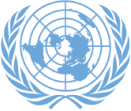Statement by His Excellency Mr. Rudolph Michael Ten-Pow, Ambassador, Permanent Representative of the Cooperative Republic of Guyanaon behalf of the Caribbean Community (CARICOM) at the Interactive Session of the Intergovernmental Negotiations on the Question of Equitable Representation on and Increase in the Membership of the Security Council and Other Matters Related to the Council, United Nations Headquarters, New York
2 February 2018
Distinguished Co-Chairs,
Listening to the debate yesterday and again this morning, I am encouraged by the constructive way in which you have guided the discussion. I note in particular the points you have made in your Co-Chairs’ summaries, your suggestions on how we might focus our interventions today around four specific issues, and your suggestion that consultations could continue at the expert level in between the several rounds of meetings that have been scheduled for this session of the IGN. This makes me hopeful that the 72nd session will in fact yield concrete results.
The member States of CARICOM are also encouraged by the continued high level of participation in the IGN. We note in particular the engagement of the P-5 and the clarity with which they have expressed their respective positions. In terms of what was said, we acknowledge that there are marked differences in the various approaches and proposals that have been put forward. What is also clear, however, is that there is a common thread running through the vast majority of positions stated, which is the need for reform to ensure, inter alia, greater efficiency and greater representativeness of the Council. We were particularly heartened by the recognition of the need for developing countries, and in particular SIDS, to be represented on the Council. One of the elements of CARICOM’s position is that a rotating seat should be reserved for SIDS countries and I welcome the support for this position expressed by the distinguished Ambassador of Malta this morning.
With regard to the issues raised by the Co-Chairs, CARICOM remains strongly supportive of the African position as set out in the Ezulwini Consensus and Sirte Declaration and so eloquently articulated again yesterday and this morning by the representatives of Africa at this meeting. Any reform of the Council must accommodate the African position in order to correct the historical injustice done to that continent and Africa’s position must be adequately reflected in any document that emerges from the IGN.
On the question of how best to utilize the outcomes of the 69th, 70th and 71st sessions, we share the view expressed by the distinguished Ambassador of Japan that a harmonized text could be developed from the outcome documents of the three preceding IGN sessions to serve as the starting point of negotiations. Of course, such a text would not be static, as Member States would have the opportunity to clarify and refine iterations of their positions and proposals as they engage with each other. CARICOM would welcome the start of such a dynamic process and looks forward to contributing in a constructive manner.
On the question of how to reconcile the differences of substance in the various positions, at the risk of overworking the metaphor of the elephant that was introduced by the Permanent Representative of Zambia this morning (and I hope that the elephant of which he spoke was at least killed legally before being eaten), I believe that the answer is to focus at this stage on the first bite. In other words, let’s focus for the time being on process. How can we move forward in our negotiations? There seems to be overwhelming support for the call to harmonize the outcomes of the last three sessions into a common text that would be the starting point of our negotiations going forward. It is only in the give and take of text-based negotiations that the UfC, for example, will receive the feedback it is seeking on the proposals so eloquently put forward this morning by the Permanent Representative of Malta.
The Co-Chairs may wish to consider using the resources available to them in the expert group to develop a text as the starting point for negotiations.
I thank you.


